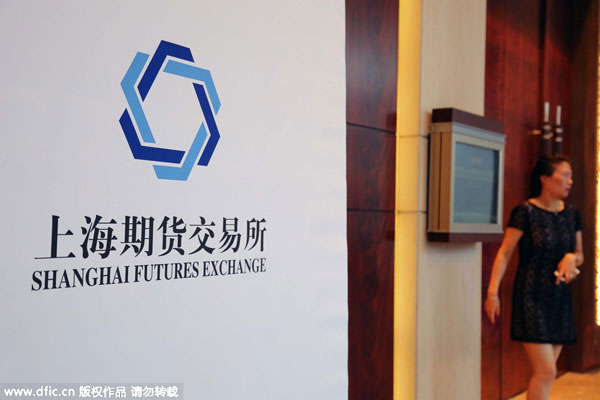Futures is here
Updated: 2015-08-07 09:22
By Cecily Liu(China Daily Europe)
|
|||||||||||
 |
|
The Shanghai Futures Exchange. [Photo/IC] |
Jonathan Berland, senior managing director of the US investment firm Gresham Investment Management LLC, says the increasing role of Chinese banks in commodities trading while Western banks are reducing these activities means that Chinese banks will have easier access to experienced human resources.
The rapid internationalization of Chinese banks means they may either hire employees from the shrinking commodities trading departments of Western banks, or acquire entire commodities sections of Western banks, Berland says
For example, in February this year, Industrial and Commercial Bank of China acquired a 60 percent stake in Standard Bank's global markets unit, a deal which allows ICBC to offer a full range of commodities services to its clients, which include some of China's largest natural resources companies.
Another key trend has been direct acquisitions of overseas commodity exchanges, such as Hong Kong Exchanges and Clearing's acquisition of the LME in 2012.
Gavin Lavelle, CEO of the London-headquartered trading and risk management software solutions firm Brady, says that building up an effective exchange is a challenging task requiring the accumulation of expertise, liquidity and legal and regulatory framework, but acquiring an exchange with its existing participants speeds up the process.
"For example, London really built up its expertise as a trading center for commodities, which took a few hundred years and not a few years. With a long history, it has accumulated many market participants and market liquidity, who have trust and confidence in commodity exchanges," Lavelle says.
He says in the case of the LME, its shareholders decided to sell it to Hong Kong Exchanges and Clearing because of the attractive price being offered. The acquisition cost 1.39 billion pounds ($2.1 billion; 1.9 billion euros). Meanwhile, from Hong Kong Exchanges and Clearing's perspective, the acquisition is not purely a financial deal as it has strategic significance.
"The LME has a big market for metals in the world, with established warehouses and other facilities, so it is hard to replicate," Lavelle says.
China is thus increasing control over the commodity supply chain through acquisition of commodity trading companies, says Cedric Chehab, head of Asia research at the London-headquartered BMI Research.
Commodity trading companies are intermediaries between the producers and they have great insight into availability and demand, with access to comprehensive logistics and supply chains.
Chehab says one key reason that China has taken a strategic direction to increase its involvement in commodity trading is because China wants to secure long-term supplies of commodities, vital for sustained domestic economic growth.
Previously, its approach of directly acquiring overseas commodities, especially natural resources like mines and agricultural land in commodity-producing countries, was met with hostility around 2006-2007 by some countries, Chehab says.
Today's Top News
Xi's trip to herald 'golden decade' for relations
Wanda's chairman Wang again becomes richest Chinese
Ex-NBA star Odom reported critical, Kardashian at his side
Country house to add English tradition to Xi, Cameron meeting
Most Chinese cities failing air quality standards: Report
Xi to initiate 'golden era' in China-UK ties
China's September inflation cooler than expected
Sensible strategic move by Russia to give Assad support
Hot Topics
Lunar probe , China growth forecasts, Emission rules get tougher, China seen through 'colored lens', International board,
Editor's Picks

|

|

|

|

|

|






